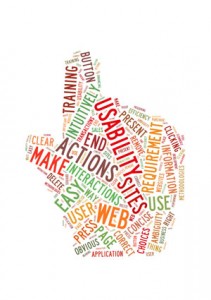How should companies deal with the growing power of individuals who use social media?
Specifically, I mean powerful individuals with a complaint about customer service.

Leaving aside the cases where the accumulation of many complaints over time leads to significant corporate change, such as the Dell social media success, and the cases of complaints that go viral because they are entertaining, such as the United Airlines guitar videos, there are an elite group of people with an extraordinary reach. These few have access to potentially millions of other people.
How should companies deal with this?
I became aware of another one of these stories when I followed a link in a blog I regularly read, to another (which I don’t). I didn’t realise who writes the second blog until halfway through the post – and that in itself is interesting, because it shows that the story reached way past the blogger’s usual readers and followers, revealing just how quickly and widely these customer service stories travel.
Essentially, the story is that an expensive washing machine broke a week after delivery. Now, we’ve all been in the repair-loop, haven’t we? Repairman comes, doesn’t have the part, has to order the part and wait for delivery, comes back, still doesn’t have all the right parts, has to reorder and come back, fixes the machine, fix doesn’t work…
Except in this case, there’s a customer service failure.
Failure 1 (at retailer service department): policy says there must be three attempts at a fix before they replace. Not three visits, three fixes.Failure 2 (at manufacturer): schedule says 3-5 days before someone can come to look. Not fix, come to look at the problem.
Failure 3 (at manufacturer): And when customer says ‘I have a lot of followers on Twitter – if I say something on there, will someone help me’, customer service says that doesn’t matter.
So: customer tweets. Customer, it turns out, is @dooce, with over 1,168,000 followers on Twitter. She now has over 2900 comments on her blog about this issue. That’s a lot of reach.
A Twitter storm erupts; customer is eventually contacted by someone senior from Whirlpool (for that is where the MayTag machine came from: @WhirlpoolCorp) who gets a repairman out within the hour, and a fix done within 24.
At the same time, customer is contacted by a competitor (Bosch – @boschappliances) and offered a free machine. Customer isn’t comfortable with this, and negotiates with Bosch that the machine should be donated to a local shelter. Bosch go further and donate a dryer as well.
Hurrah! Customer wins: working machine. Shelter wins: working washing machine and dryer. Bosch wins: lots of great publicity.
What about Whirlpool and the (unnamed) retailer?
Here are my thoughts – or, mostly, questions:
On customer service
This kind of public customer service failure is a clear message to both retailer and manufacturer to re-examine their customer service policies. The common-sense view is that a week-old machine should have been fit for purpose; it clearly wasn’t. So what should the policy have been?
Some companies have a clear focus on providing the best possible customer service; John Lewis and Marriott, for example. Others don’t, and that decision is down to company strategy and positioning. But social media is pushing companies for better customer service all the time. In ‘the old days’ it used to be said that an unhappy customer tells 10 people; now they can tell millions within minutes.
So how should the companies concerned deal with this, and with the impact on customer service? The questions I’d ask include:
- How much flexibility and power do the people at the front line really have to rectify problems? (Could they have behaved any differently within the company constraints?)
- In this case, could the retailer and the manufacturer have communicated direct, cutting down the wait time?
- Could you implement a triage system, either by people paying to be a priority customer, or by having a policy of responding to certain types of calls more urgently (roadside recovery companies going out to women alone with children first, or the utilities companies getting to people with medical needs first)?
- Do you need to reconsider the priority given to customer service, given the potential impact on corporate reputation? Do staff understand the corporate priorities?
Whatever the policy is, it should be clearly explained in advance to customers and to staff. Mismanaging expectations is at the root of the problem.
On social media monitoring and priorities
@WhirlpoolCorp were monitoring what was being said about them and their products; @Boschappliances were monitoring what was being said about their competitors. And it looks as though both reacted fairly quickly to the social media complaints. That’s great, and is exactly what social media experts recommend when facing a Twitter crisis. Companies do need to be alert to the potential of a social media PR crisis.
But would it be possible to escalate complaints made to customer services in the same way? Do social media users get a better response than those in the standard service queue? And what if the customer didn’t have 1m followers, but only 10, or 100? Should they be treated in the same way as the customer with 1m followers, because anyone can be the trigger for a Twitter storm?
Was the Whirlpool customer service agent right to say that Twitter didn’t matter – if she’d been told that all customers should be treated alike? Or wrong, because of the potential impact on the corporate reputation?
What is your policy on this?
And is it wrong for a customer to publicise a problem via social media? Personally, I think it’s OK, as long as they’ve tried going through the company’s own problem solving procedures first. As has been said before, this bad publicity is the symptom of a problem, not the cause of it. It’s going to happen; this time it was Whirlpool; but next time it could be you.
On powerful influencers
 How should a company react to ‘don’t you know who I am’? In theory, everyone should receive the same, excellent service; in reality, this is very difficult to achieve.
How should a company react to ‘don’t you know who I am’? In theory, everyone should receive the same, excellent service; in reality, this is very difficult to achieve.
You may be monitoring what is being said about you, but is it worth identifying who are the powerful influencers in your core market?
“Yes, yes, we do that”, you say, “in order to communicate with their audience in turn, and to fine-tune our marketing messages”
… but have you considered flagging these people up to customer services? Handle with care; VIP.
Is that ethical?
Would it even make a difference? After all, anyone can use social media to publicise their complaints, not just your key influencers. Twitter complaints are high profile, and the crisis can escalate very quickly. It can’t be denied that some people can shout louder; but is it possible to identify those people in advance of the crisis?
Do you provide a better service to those who can shout the loudest (or pay the most), or provide a less good service equally to all? What are your customers’ expectations? What is your brand promise?
On public relations and workload management
While I felt a certain unease at the propriety of Bosch’s interpolation of themselves into the story, others here at Corporate Eye saw this as a PR triumph – with a double gold medal for then donating the equipment to a local charity at the request of the influential blogger.
Bosch have clearly done well out of this, and Whirlpool made a nice recovery once senior management got involved. But is there a PR issue looming? Will there be a backlash against companies providing unbalanced customer service? Will there be a rush to Twitter, as people perceive that those who do get a better deal?
And how will you balance the customer service workload and priorities? Should the priorities for customer service really be based on reputation management?
Social media policies need to include customer service and crisis management
Lots of questions here, but only you can decide the answers. Ultimately, each company will need to decide for themselves how they handle influential individuals, and on the priority they give to problem escalation via social media; and they will need to do this before the crisis hits.
Does your social media policy cover this? How about your corporate ethics?
Lucy is Editor at Corporate Eye


